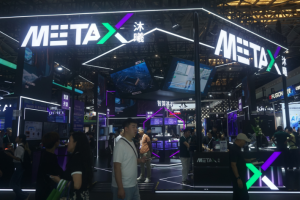Intel is to be allowed more time to sell millions of dollars’ worth of chips to China’s Huawei, despite rival AMD claiming the US tech giant is being given preferential treatment.
Advanced Micro Devices argued it was unfair that it did not have permission to sell similar chips to Huawei and US President Joe Biden has long been under pressure to revoke Intel’s licence, issued by the Trump administration, that allows it to ship advanced central processors to Huawei for use in laptops.
Intel’s ability to hang on to its licence to sell chips while a rival hasn’t has allowed Huawei to keep a small but growing share of the global laptop market, while AMD has been deprived of hundreds of millions of dollars’ worth of sales to the Chinese sanctioned firm, data showed.
Also on AF: Hang Seng Rallies on Property Stimulus, Nikkei Slips Again
“The majority of the CPUs used in Huawei’s laptops is still from Intel, so any further limitation on it would make Huawei’s laptop offering quite challenging,” said Emma Xu, an analyst with technology market research firm Canalys.
Describing the curbs on Huawei as economic bullying,” the Chinese Embassy in Washington urged the United States to “stop overstretching the concept of national security” to “suppress Chinese companies”.
Huawei, a symbol of the years-long technology war between Washington and Beijing, was added to the trade restriction list by the Trump administration in 2019 over alleged sanctions violations. Huawei has previously denied wrongdoing.
Being added to that list usually bars US suppliers from selling anything to the targeted company.
But in late 2020, just before former President Donald Trump left office, the Commerce Department granted some US Huawei suppliers – including Intel – special permission to sell certain items to the telecoms equipment giant.
AMD applied for a licence to sell similar chips in early 2021 after President Joe Biden took office but never received a response to its application, a source said.
The impact on CPU chip sales to Huawei was immediate, with the share of sales of Huawei laptops containing AMD chips plunging from 47.1% in 2020 to 9.3% in the first half of 2023, an internal AMD presentation with data sourced to NPD and GfK showed.
Intel-Powered PC Sales Soar
Intel’s share of sales of Huawei laptops containing its chips soared during the period from 52.9% to 90.7%, according to the presentation.
That left the two companies with upwards of a $512 million dollar “estimated revenue discrepancy” by early 2023, according to the presentation.
The push to revoke licences appeared likely to bear fruit last year when a government official said publicly that Huawei’s licensing policy was under review and privately told companies the US Commerce Department would fix the licensing discrepancy, sources said.
But by late last year, the agency had shelved plans to revoke licences, without providing a reason.
At the same time Washington was attempting to reset relations with Beijing, including reestablishing military-to-military talks, after a Chinese spy balloon’s discovery in US airspace last winter soured relations between the two superpowers.
Intel’s licence is expected to expire later this year, and is unlikely to be renewed, sources said. Meanwhile, Huawei continues to rely heavily on Intel chips for its laptops, its website shows.
In China, Huawei’s share of sales has grown from 2.2% in 2018 to 9.7% for 2023 when it replaced Dell as China’s third largest laptop manufacturer, according to Canalys.
- Reuters with additional editing by Sean O’Meara
Read more:
In Manila, Raimondo Promises Chip Fabs and More Curbs on China
TikTok Ban Would Help ‘Enemy of the People’ Facebook: Trump
AI Fever Sees Chip Firm Nvidia Close in on Apple’s No2 Ranking
US Sanctions Based on Wrong View of China, Says Foreign Minister
US to Block Personal Data Sales to China, Russia – engadget























